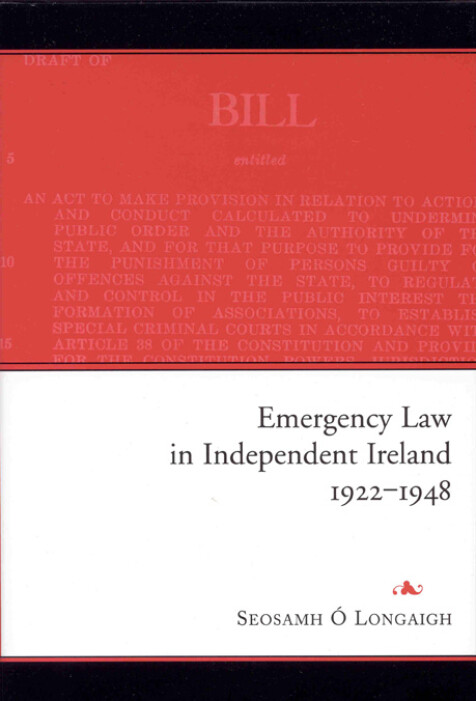Emergency law in independent Ireland, 1922–1948
Seosamh Ó Longaigh
Although the major political issues that plagued Ireland in the 19th century (land ownership and self-rule), were largely resolved by 1921, there remained persistent opposition to the independent state that the ordinary criminal law was incapable of containing. This opposition challenged successive governments to develop politically acceptable emergency legislation to cope with the political violence that affected the state between 1922 and the end of the Second World War. During that time, 29 separate emergency statutes were drafted. This book examines the political, legal and constitutional issues surrounding the development and use of these laws, leading to an understanding of why there has been no new significant anti-subversion legislation since 1939. It also examines the legislative measures developed during the civil war and in its immediate aftermath, and considers the legislation developed in preparation for and during 'the emergency'.
Seosamh Ó Longaigh holds a PhD from University College Cork and has worked as a management consultant in both the public and private sectors for several years.

